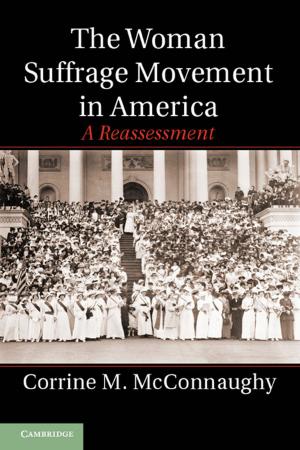Islamist Terrorism and Democracy in the Middle East
Nonfiction, Social & Cultural Studies, Political Science, History, Religion & Spirituality| Author: | Katerina Dalacoura | ISBN: | 9781139062558 |
| Publisher: | Cambridge University Press | Publication: | April 29, 2011 |
| Imprint: | Cambridge University Press | Language: | English |
| Author: | Katerina Dalacoura |
| ISBN: | 9781139062558 |
| Publisher: | Cambridge University Press |
| Publication: | April 29, 2011 |
| Imprint: | Cambridge University Press |
| Language: | English |
What were the reasons behind the terrorist attacks of September 11th? Does the cause of Islamist terrorism relate to the lack of democracy in the Middle East? Through detailed research into the activities of both radical and moderate organizations across the Middle East, such as the Muslim Brotherhood, Hamas and Hizbullah, and via interviews with key personnel, Katerina Dalacoura investigates whether repression and political exclusion pushed Islamist entities to adopt terrorist tactics. She also explores whether inclusion in the political process has had the opposite effect of encouraging Islamist groups toward moderation and ideological pragmatism. In a challenge to the conventional wisdom, she concludes that Islamist terrorism is not a direct consequence of authoritarianism in the Middle East and that there are many key factors that generate radicalism.
What were the reasons behind the terrorist attacks of September 11th? Does the cause of Islamist terrorism relate to the lack of democracy in the Middle East? Through detailed research into the activities of both radical and moderate organizations across the Middle East, such as the Muslim Brotherhood, Hamas and Hizbullah, and via interviews with key personnel, Katerina Dalacoura investigates whether repression and political exclusion pushed Islamist entities to adopt terrorist tactics. She also explores whether inclusion in the political process has had the opposite effect of encouraging Islamist groups toward moderation and ideological pragmatism. In a challenge to the conventional wisdom, she concludes that Islamist terrorism is not a direct consequence of authoritarianism in the Middle East and that there are many key factors that generate radicalism.















